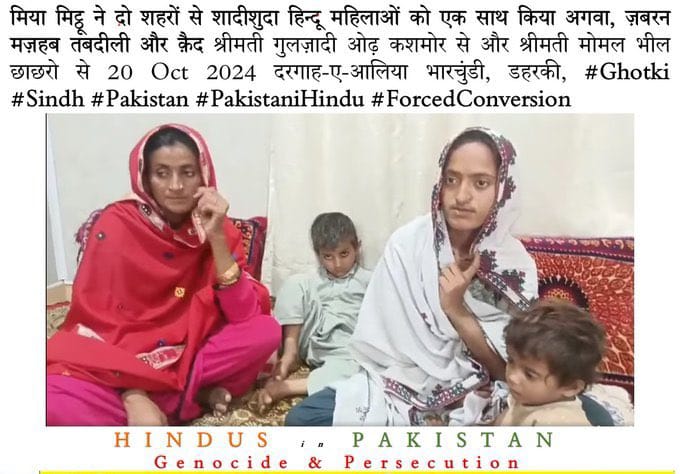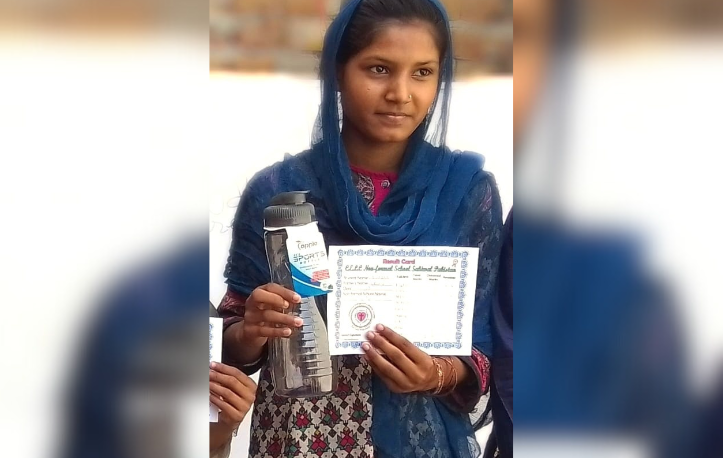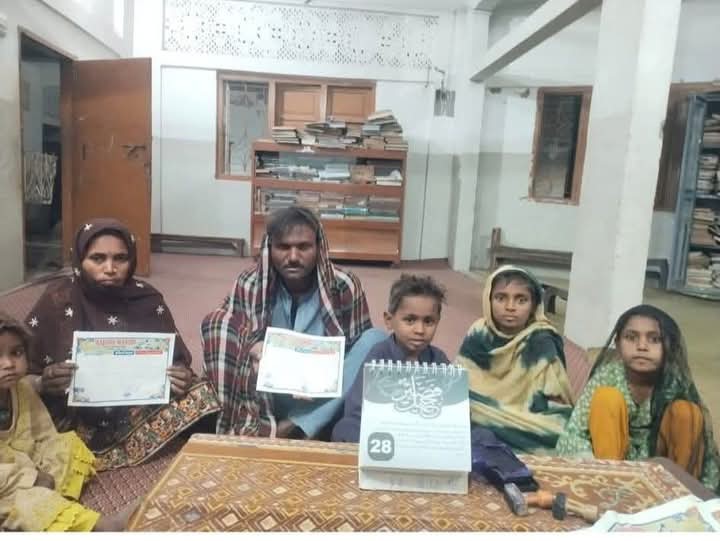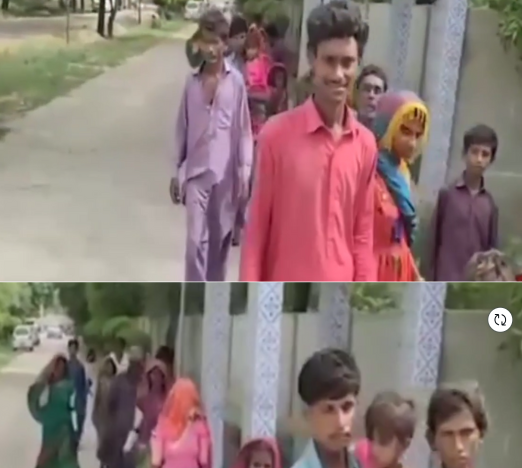On October 20, 2024, the plight of Hindu women in Sindh was brought to the forefront once again with the abduction of two women. Gulzadi, Islami name Sadia, a mother of four minor children from Chchchro, and Momal, Islami name Asifa, from Kashmore, along with her daughter.
In Ghotki, Sindh, the fundamentalist Islamist Mian Mithu abducted both women and forcibly converted them to Islam.
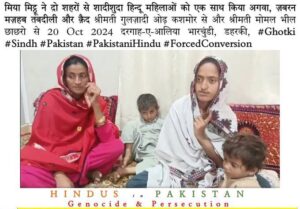
The families of Gulzadi and Momal are left in a state of despair, grappling with the trauma of their loved ones’ abduction. Their husbands and relatives have voiced their fears and concerns, but the response from legal institutions and relevant organizations has been dishearteningly inadequate. This situation is not new; it is part of a disturbing pattern where the rights of minority women are routinely ignored in Pakistan.
Mian Mithu’s ability to operate with impunity can be attributed to his connections with influential politicians and Pakistani security officials, providing him with a shield against accountability. This systemic failure to protect minorities raises critical questions about the integrity of law enforcement and the judicial system in Pakistan. How many more women must suffer before decisive action is taken?
The international community, including human rights organizations, has been slow to respond to the escalating crisis faced by religious minorities in Pakistan. Despite numerous reports of abduction, forced conversions, and violence, concrete steps to address these violations remain elusive. The silence from global organizations is deafening, as the suffering of these women continues without intervention or support.
Religious minorities, particularly Hindu women, find themselves in an increasingly precarious situation. The fear of abduction and forced conversion haunts their daily lives, stripping them of safety and autonomy. The societal structures that should offer protection instead perpetuate their vulnerability, as they navigate a landscape riddled with discrimination and hostility.
It is imperative that the voices of these women are amplified and their stories are told. The plight of Gulzadi and Momal is not just an isolated incident; it reflects the broader systemic issues that allow such atrocities to persist. Advocacy for their rights must be coupled with pressure on governments and international organizations to take meaningful action.
As we reflect on the situation in Pakistan, we must recognize the urgent need for change. The safety and dignity of all individuals, regardless of their religious beliefs, must be prioritized. The fight against oppression requires collective action and unwavering commitment to human rights. We cannot afford to remain silent while the lives of innocent women hang in the balance.
Gulzadi and Momal’s story serves as a tragic reminder of the ongoing struggles faced by religious minorities in Pakistan. It calls on us all to stand in solidarity with those who are oppressed and to demand justice for the voiceless. The time for action is now; for the sake of these women and countless others, we must strive for a future where everyone can live freely, without fear of persecution.
For more updates and detailed coverage of this case and other issues affecting the Hindu and Sindhi communities in Sindh, Pakistan, stay tuned to Sindh Renaissance.



